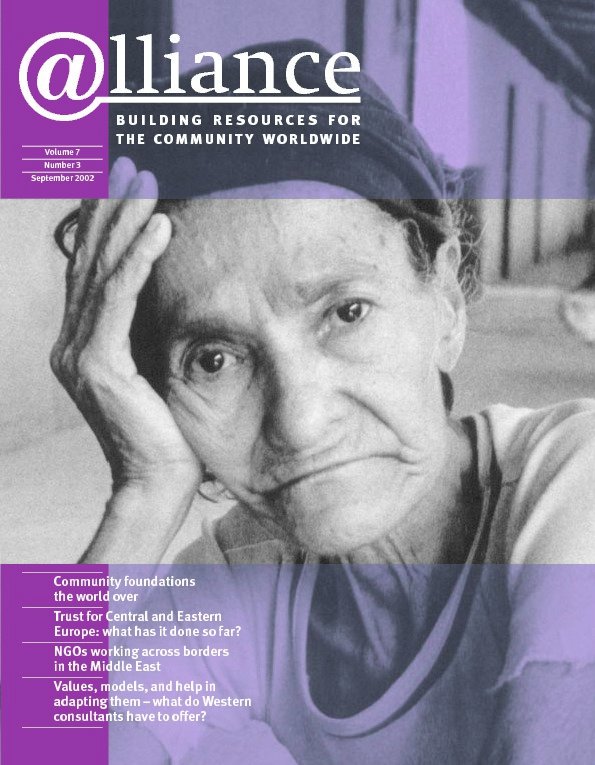PACOS in Malaysia provides a good example of an intermediary organization emerging from the grass roots. In 1999 the Bernard van Leer Foundation (BVLF) was working with seven different indigenous groups geographically separated by difficult terrain. They all run preschools, including PACOS. Now policy and funding decisions are made by a steering group representing all groups, while PACOS provides a structure to move the process forward once decisions are taken.
Bringing the different groups under a single local umbrella organization and handing funds and control of the programme to this organization has benefited everyone concerned. Most of the field partners can point to evidence that preschools have improved school retention and school performance.
This development was possible because the various groups share the same basic objective: to increase school retention of indigenous children and to ensure that the education they receive is in harmony with indigenous values and practices. They share a deep concern about the loss of their cultural heritage through assimilation and exposure to lifestyles that they believe undermine their view of the world.
The partner groups already knew each other well, having worked together on various issues. So we were building on a process that was already going on among indigenous groups in Malaysia to develop a platform to better represent their interests. Perhaps what is new is that the early childhood development (ECD) programme gives them something very concrete to collaborate on. PACOS took on the ‘umbrella’ position because it had the most experience and capacity and was accepted by the others to serve that function.
The advantages of the arrangement are many. PACOS is able to provide the indigenous groups with much-needed local back-up, organizing technical assistance when needed and providing a first line of mediation for solving problems. Accountability is a key area: BVLF’s requirements in terms of financial accounting and reporting were very difficult for our partner groups, given a different language and lack of experience. Working with a local ‘intermediary’ means that they can report in the local language and allow PACOS to produce the necessary documentation.
Using an intermediary also means more indigenous control. The steering group operates according to indigenous principles that they have defined. This allows considerable room for our local partners to make decisions and control the resources of the project, within certain parameters agreed between us, ie the steering group must be made up of ECD programme specific people (BVLF’s requirement) who are indigenous (local partners’ requirement).
BVLF’s current role
The change also made sense in terms of BVLF’s workload. Working with several indigenous groups at field level was proving very labour-intensive and we were at times expected to mediate in highly local problems that were too far away for us to judge the situation adequately. The hope was that working collectively would streamline this workload without losing our range of partners.
BVLF still has a big role to play. First and foremost, we provide the consortium with funds for their field-based activities. We put very little funding towards PACOS’s
intermediary functions like accounting and admin, but we do fund some activities across groups such as documentation, monitoring and evaluation.
In addition, we send relevant materials, put them in touch with useful contacts inside and outside Malaysia, actively encourage documentation and evaluation processes, and give constructive feedback on the correspondence and documentation which they send, especially if they are stuck with a problem.
Liana Gertsch is the Asia Programme Officer at BVLF. She can be contacted by email at liana.gertsch@bvleerf.nl
For more information, please contact Anne Lasimbang at PACOS at annfelix@tm.net.my or Liana Gertsch at BVLF at liana.gertsch@bvleerf.nl





Comments (0)